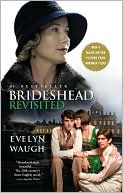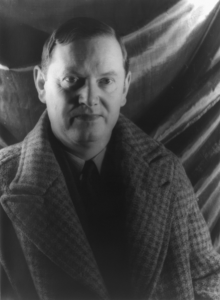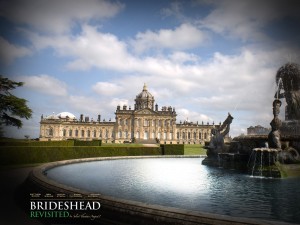“Where can we hide in fair weather, we orphans of the storm?”
Published in 1945, this novel, which Evelyn Waugh himself sometimes referred to as his “magnum opus,” was originally entitled “Brideshead Revisited: The Sacred and Profane Memories of Captain Charles Ryder.” The subtitle is important, as it casts light on the themes–the sacred grace and love from God, especially as interpreted by the Catholic church, vs. the secular or profane love as seen in sex and romantic relationships. The tension between these two views of love–and the concept of “sin”–underlie all the action which takes place during the twenty years of the novel and its flashbacks.
novel, which Evelyn Waugh himself sometimes referred to as his “magnum opus,” was originally entitled “Brideshead Revisited: The Sacred and Profane Memories of Captain Charles Ryder.” The subtitle is important, as it casts light on the themes–the sacred grace and love from God, especially as interpreted by the Catholic church, vs. the secular or profane love as seen in sex and romantic relationships. The tension between these two views of love–and the concept of “sin”–underlie all the action which takes place during the twenty years of the novel and its flashbacks.
When the novel opens at the end of World War II, Capt. Charles Ryder and his troops, looking for a billet, have just arrived at Brideshead, the now-dilapidated family castle belonging to Lord Marchmain, a place where Charles Ryder stayed for an extended period just after World War I, the home of his best friend from Oxford, Lord Sebastian Flyte. The story of his relationship with Sebastian, a man who has rejected the Catholicism imposed on him by his devout moth er, occupies the first part of the book. Sebastian, an odd person who carries his teddy bear Aloysius everywhere he goes, tries to escape his upbringing and religious obligations through alcohol. Charles does feel that it is this relationship with Sebastian which first teaches him about the depths of love.
er, occupies the first part of the book. Sebastian, an odd person who carries his teddy bear Aloysius everywhere he goes, tries to escape his upbringing and religious obligations through alcohol. Charles does feel that it is this relationship with Sebastian which first teaches him about the depths of love.
The second part begins when Charles separates from the Flytes and his own family and goes to Paris to study painting. An architectural painter, Charles marries and has a family over the next years. A chance meeting on shipboard with Julia, Sebastian’s married sister, brings him back into the circle of the Flyte family with all their religious challenges, some of whom have found peace in the secular world and some of whom have not. “No one is ever holy without suffering,” he believes.
 Dealing with religious and secular love, Heaven and Hell, the concepts of sin and judgment, and the guilt and punishments one imposes on oneself, the novel also illustrates the changes in British society after World War II. The role of the aristocracy is less important, the middle class is rising, and in the aftermath of war, all are searching for values. A full novel with characters who actively search for philosophical or religious meaning while they also search for romantic love, Brideshead Revisited is complex and thoughtfully constructed, an intellectual novel filled with personal and family tragedies–and, some would say, their triumphs.
Dealing with religious and secular love, Heaven and Hell, the concepts of sin and judgment, and the guilt and punishments one imposes on oneself, the novel also illustrates the changes in British society after World War II. The role of the aristocracy is less important, the middle class is rising, and in the aftermath of war, all are searching for values. A full novel with characters who actively search for philosophical or religious meaning while they also search for romantic love, Brideshead Revisited is complex and thoughtfully constructed, an intellectual novel filled with personal and family tragedies–and, some would say, their triumphs.
Notes: The author’s photo appears on Wikimedia Commons.
The estate used as Brideshead in the 2008 film is shown here: http://www.entertainmentwallpaper.com
Also reviewed here: PUT OUT MORE FLAGS, VILE BODIES
